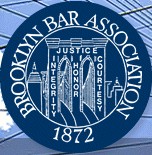On January 14, 2014, the Office of the New York State Attorney General (OAG) made a significant contribution in combating the ignominious patent troll.
Attorney General Eric Schneiderman announced that MPHJ Technology Investments, LLC (MPHJ), a so-called “patent troll”, entered into an Assurance of Discontinuance (or settlement) with the OAG stemming from the OAG’s June 2013 investigation of potentially deceptive statements, and other abusive conduct, by MPHJ relating to its patent licensing program which targeted New York businesses as potential infringers of its patents.
See Assurance No. 14-015. The Attorney General’s investigation focused on MPHJ’s use of deceptive and abusive tactics when it contacted hundreds of small and medium-sized New York businesses in an effort to strong-arm them into paying MPHJ for patent licenses of dubious value.
Thankfully, the State of New York is taking corrective measures against patent troll abusive tactics. The settlement establishes guidelines for entities who exemplify patent troll behavior. Amongst other things, the settlement contains guidelines for future patent assertion conduct that, in part, include:
- good faith basis for asserting patents after conducting reasonable diligence;
- providing material information necessary for an accused infringer to evaluate a claim;
- material information necessary to evaluate a reasonable royalty rate;
- no misleading statements about a license fee;
- transparency of ownership of the patent holder and financial interest;
- additional safeguards against deceptive patent assertion conduct; and,
- material information necessary to evaluate the value of a proposed license
It is important to note that the guidelines in the OAG’s settlement are minimum standards and are not a safe harbor. OAG states that “[t]he requirements imposed on MPHJ in the settlement should be viewed by other patent trolls as the minimum standards that such entities seeking to contact New York businesses must follow to avoid liability for unlawful deceptive practices.”
MPHJ v. FTC
In addition to falling squarely within the crosshairs of the New York, Nebraska, Minnesota, and Vermont Attorney Generals, MPHJ is one of the first patent trolls to ostensibly catch the consumer protection watchful eye of the Federal Trade Commission (FTC). Prior to the FTC filing its draft complaint, MPHJ filed its own preemptive complaint on January 13, 2014 in the Western District of Texas against the FTC and its commissioners and directors. See MPHJ Technology Investments v. FTC et al.; case no. 6:14-cv-00011-WSS. As a bit of background, the FTC first sent a subpoena to MPHJ in July 2013, “seeking certain information regarding MPHJ’s patent-related correspondence and enforcement activity” prior to likely seeking a consent judgment or pursuing FTC Act litigation barring deceptive trade practices. FTC also served a subpoena on Farney Daniels, the law firm retained by MPHJ to help with its enforcement campaign.
MPHJ contends that its lawsuit against the FTC arises out of the “unlawful interference and threats by the FTC Defendants against MPHJ and its counsel directed at stopping or impeding the lawful, proper, and constitutionally protected efforts by MPHJ to identify and seek redress for infringement of its U.S. patents.”
To date, the FTC has not filed its reply to MPHJ’s Complaint. Notwithstanding, intellectual property enthusiasts and many interested others anxiously await greater, appropriate patent reform.



